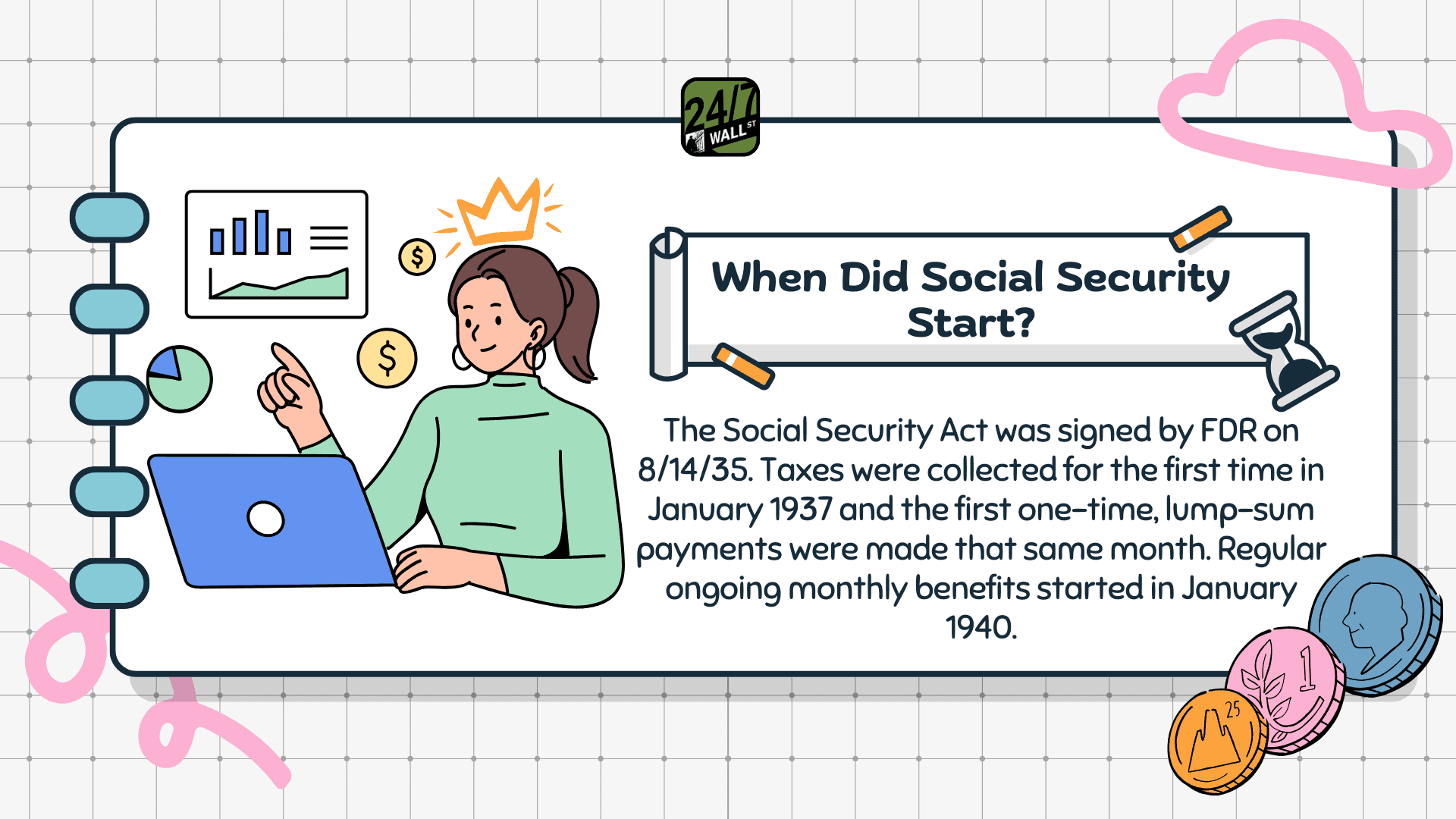Banking, finance, and taxes
Social Security Falling Apart, as Plans to Fix It Expand

Published:
Last Updated:

Social Security will not be able to pay all its obligations by 2035, according to its own estimates. While a drop in payments will affect everyone in the program, those paid by it in 2045 and after will carry the brunt of the catastrophe, according to a new study. There are some proposals about how to address the challenge.
Social security payments could drop soon.
The fund will have payment problems by 2035, and it gets worse a decade later.
Take this quiz to see if you’re on track to retire. (sponsored)

After 2035, payments to the 81 million Americans who count on Social Security for retirement and people with disabilities will decline if Congress does not increase funding. By 2033, only 2.4 American workers will pay money to the fund per each recipient. That figure was 3.4 in 2000.
Federal law mandates that Social Security cannot pay benefits that exceed its yield. Based on that, the payout in 2035 will be 83% of scheduled benefits. That figure will eventually drop to 73%. By 2045 the situation worsens considerably. According to the Urban Institute, “Our estimates show that if Congress fails to increase Social Security revenues, median annual benefits would fall $5,900 (measured in 2022 inflation-adjusted dollars) in 2045, relative to benefits scheduled under current law.”
Depending on a person’s income the drop could be catastrophic. Millions of older Americans could be driven into poverty.
So far, none of the options for to repair Social Security payment has been palatable. The first is the most obvious. Congress could increase funding. So far, they are not willing to approve payments to the fund that would eventually be hundreds of billions of dollars.
Two other options are on the table. The first is that the age at which people can receive Social Security benefits will be pushed out by two years. For most Americans, payments would start when people are 68 or 69, if this is the solution. The other frequently suggested option is that people who already have enough money to “pay” for their retirement get reduced or no payments. The income level for this proposal varies. Sometimes known as the “billionaire problem,” people with incomes over a certain level would get smaller payouts, and at some level of wealth, no payments at all. Among the affluent, the pushback is they made payments into the fund so they should get benefits, no matter what.
The threat to Social Security payment levels is not new, but some solutions are.
The 8 Most Common Money-Saving Moves Americans Plan to Do If Social Security Runs Out
If you’re one of the over 4 Million Americans set to retire this year, you may want to pay attention. Many people have worked their whole lives preparing to retire without ever knowing the answer to the most important question: am I ahead, or behind on my goals?
Don’t make the same mistake. It’s an easy question to answer. A quick conversation with a financial advisor can help you unpack your savings, spending, and goals for your money. With Zoe Financial’s free matching tool, you can connect with trusted financial advisors in minutes.
Why wait? Click here to get started today!
Thank you for reading! Have some feedback for us?
Contact the 24/7 Wall St. editorial team.